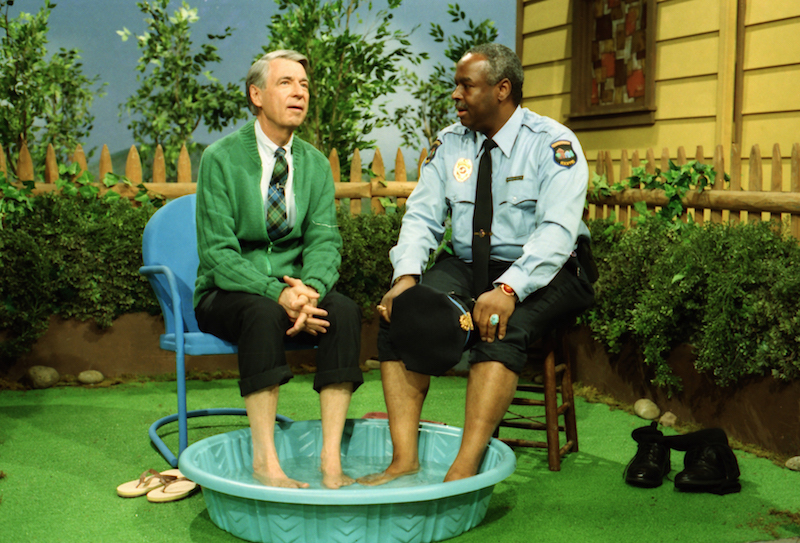
I’m no doctor, but I’m nonetheless prescribing that you get out and see Morgan Neville’s new documentary on the life and career of Fred Rogers, Won’t You Be My Neighbor? There is something spirit-cleansing about this film, which shows how a young Fred Rogers postponed the seminary (he would eventually be ordained) to try his hand at this new medium called television. He believed that television was a powerful pulpit that could be used to send uplifting, empowering messages to people, particularly children. It also so happened that he was a good piano player, and a more than serviceable singer and puppeteer. But that wasn’t the secret to the unlikely success of the show he created, Mister Roger’s Neighborhood, which ran for 33 years on public television. The secret was Rogers himself, a humble man who truly listened to and cared about children and who stressed our common humanity in everything he did.
The documentary shows us some of the highlights of Rogers’ storied career. We see him testify in front of the Senate in 1969 to save PBS (his earnest and aspirational words did the trick). We see his famous interview with a little boy in a wheelchair—they sing together, and talk about how it’s okay to be blue sometimes. “I’m not feeling blue right now,” Rogers says. “Me neither,” the little boy says, his face lighting up with joy. We see him interacting with Koko the gorilla, who seems to intuitively understand that she’s dealing with a better brand of human here.
We also see him subtly and persuasively addressing the political issues of the day. During the ’60s, when black people were being segregated to separate pools, he shared a cooling wading pool with the black actor François Clemmons, who played Officer Clemmons on the show. (He goes so far as to wipe Clemmons’ feet with a washcloth.) As the show progressed, he would take on larger issues that might be troubling or baffling to a child: death, divorce, war. And he always did it by listening to children, understanding them, and respecting their point of view.
The film interviews many of Rogers’ friends, family, colleagues, and admirers, including his wife, Joanne, his two sons, the cellist Yo Yo Ma, and the writer Tom Junod. They all convey the same message: What you saw on TV was who he really was—a man of extraordinary kindness, faith, and humility.
The word that kept coming to mind as I watched the film was “empathy”: It seems we have a lack of empathy in the world right now. (To drive home that point, the film shares a 2007 Fox News segment about how Rogers’ message that every child is special is “evil” because it encourages laziness and entitlement. I kid you not.) But Fred Rogers had an abundance of it. He truly believed that every life had value and that everyone deserved to be understood, accepted, and heard.
“The film makes you want to be a better person,” my sister said to me after our screening. Indeed, going forward, I’m going to ask myself: What Would Fred Rogers Do?
Won’t You Be My Neighbor? opens Friday, June 22 at the Charles Theatre.
